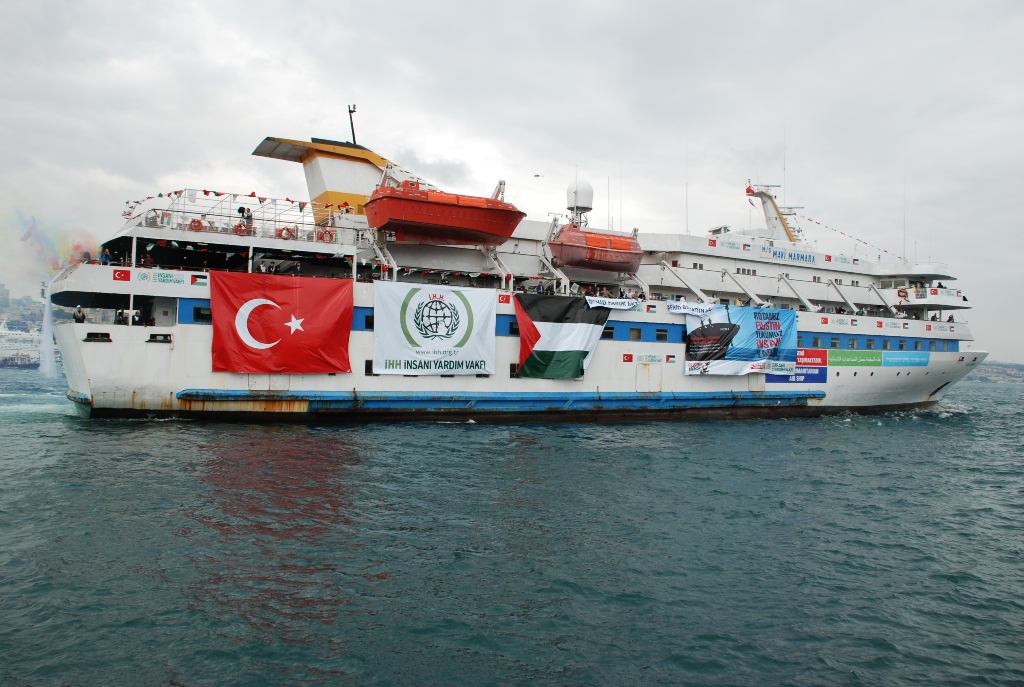by Bulent Aras
There has been a cyclical pattern to Turkish-Israeli relations over the past several decades. These two countries share similar characteristics in terms of their Western institutions and policy attitudes, multi-ethnic and secular societies, and complicated relations with their Arab neighbors and Iran. At the same time, there have been differences in state building, the historical trajectories of their relations in the region, their alliance patterns, and their ties with international powers.
Israel and Turkey have been reconciled at times when they have faced a common threat or had a common ally that could bring them together. As an example of the former, bilateral relations were at their highest point in the 1990s due to shared concerns about Iran. Turkish officials had two major concerns in those years: the rise of political Islam and difficulties with the Kurds. They believed that Iran was interfering to worsen these problems in Turkey. These concerns resonated with Israel’s threat perception regarding Iran, and the two countries experienced a rapid improvement in political, security, and military relations in this period. Their military cooperation even extended to joint exercises and saw Israeli fighter pilots training in Turkish airspace.
Relations between Turkey and Israel hit bottom when Israeli Defense Forces commandos raided the Gaza Freedom Flotilla in international waters in May 2010 and killed 10 Turkish citizens. The Gaza Flotilla aimed to break the Israeli naval blockade on Gaza. The vessel that the Israelis attacked, the Mavi Marmara, was owned by a Turkish humanitarian NGO, the Humanitarian Relief Foundation (IHH). It was the largest ship in this flotilla and held mainly Turkish passengers. Turkey immediately downgraded its diplomatic relations with Israel to the level of second secretary and Israel withdrew its ambassador from Ankara.
Following the Mavi Marmara incident, Ankara demanded three conditions for the normalization of relations with Israel—an official Israeli apology, the lifting of the Gaza blockade, and compensation for the victims. U.S. President Barack Obama arranged a phone call between Israeli Prime Minister Benjamin Netanyahu and Turkish Prime Minister Recep Tayyip Erdogan, and Netanyahu apologized for the incident and agreed to pay compensation in March 2013. This renormalization was only made possible through U.S. intervention, as a persuasive ally of both countries.
The reconciliation that followed Israel’s apology did not last very long. Although the two countries restored their relations to the ambassadorial level in 2016, Turkey expelled the Israeli ambassador after Israeli security forces killed 60 Palestinian protesters in Gaza in May 2018. As of today, Israel and Turkey have neither have a common threat nor a common friend in regional and international relations.
The problem is a shortage of political will on both sides to end this structural pattern, which shifts responsibility for maintaining their relations to outside actors. Tensions in Turkish-Israeli relations have been exploited by populist politicians in both countries to consolidate their domestic support. At the same time, Turkish and Israeli policy-makers have able to protect economic relations from the strains caused by these political problems. Total trade between Turkey and Israel exceeded $8 billion in 2018 and is likely to increase.
There have been positive developments on the political front. Recent elections in Turkey and Israel have suggested that the political power of hardline forces in both countries is diminishing, raising the prospect of more adaptable foreign policy. The securitization of politics in Israel and Turkey has been a major barrier preventing a genuine attempt to normalize relations. Though limited, there may be a chance now to restructure the Turkey-Israel relationship to overcome the structural challenges in light of both domestic and regional politics.
Regionally, Turkish and Israeli leaders share concerns regarding Iran, though the Israeli government regards Iran as a much more significant threat than does Turkey’s. For the right wing government in Israel, Iran is an existential threat and all options should be on the table when it comes to dealing with Tehran. Turkey’s nationalist-conservative government has called for restraint and dialogue in dealing with Iran, but despite Erdogan’s stated objections to U.S. sanctions against Iran, Turkey has largely complied with them. Though they agree that Iran presents a challenge, this divergence of opinion on how to deal with it is a possible source of tension in Turkish-Israeli relations.
Factors like the Trump administration’s maximum pressure campaign against Iran, the escalation of Saudi-Iranian tensions to a dangerous level, the worsening situation in Syria, the deepening of the intra-Gulf rivalry, the presence of nearby failed states (e.g., Yemen and Libya), and the spread of various forms of transnational extremism have changed the context for relations between Turkey and Israel. The cyclical pattern in their relationship does not correspond to the demands of regional geopolitics. It is no longer possible to preserve a controlled tension in their relations in the current multi-threat environment. It will not be easy to change the Turkey-Israel relationship, but resisting change would be swimming against the tide.
Israeli and Turkish leaders must first consider that they have no alternative in the current regional environment but to maintain relations with one another. Neither has any diplomatic alternative to the other, and cutting ties would not benefit either’s regional policies. Second, they should understand that non-state entities, extremist threats, and Iran’s regional role (particularly in Syria), among other issues, are common concerns in both countries. Third, Turkey and Israel should avoid taking part in rival regional blocs, whose aims are not necessarily in the best interests of either country.
A rational recalibration in Turkish and Israeli foreign policies would make reconciliation easier, once political elites recognize that the cyclical pattern and continuous securitization of their relationship does not serve the interests of their countries. Failing to recalibrate would mean not only losing the benefits of the normalization, but sticking to harmful policies. Recent developments in Turkish and Israeli politics have opened a window for change in their relationship. Taking advantage of that window will require the emergence of a mutual political will for reconciliation.
Bulent Aras is a Senior Scholar at the Istanbul Policy Center, Visiting Researcher at Rensselaer Polytechnic Institute, and Advisor at Gulf State Analytics.






Here’s the difference between Turkey and Israel.
Turkey kills innocent Kurds, and Israel trains them to defend themselves, so that one day they can kick Turkey’s butt.
Israel’s land grabbing policies have and still are causing homelessness and refugees! Turkey is very concerned about the floods of refugees migrating into Turkey from its southern border! Very legitimate concerns for the officials in Turkey.
KHOSROW
When East Aleppo was being freed, groups of Turks were protesting with placards reading “Iran Qatel”.
I trust neither Turks, nor Pakistanis, nor Arabs – except those with the Shia Crescent.
BIGBOSSMAN1PP
As the records show, Israel has never trained the Kurds so that they would one day gain “independence”!
Israel has always used the Kurds, trained and armed them, to either attack Israel’s perceived enemies such Iran, Iraq or Syria or to challenge to force Turkey into cooperation with Israel.
Israel’s so called support for an independent Kurdistan has also been a part of the Zionist plan to fragment Iraq.
ARHAZIAN
Never forget the atrocities committed by Saddam’s soldiers in Iran in the 80’s. I for one have since lived with the shocking memories of that war and the fact that the majority of Saddam’s army were Shia.
The war proved ethnical identity to be far more important than religious identity. And in our evolving unpredictable and ever changing political world nothing can be taken for granted. Hence, no country should be trusted: our survival as a nation depends on our genuine solidarity which has always been our enemies’ target.